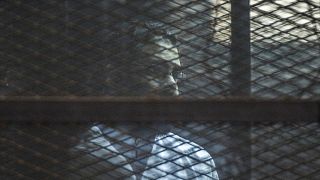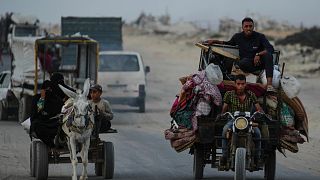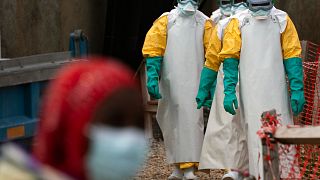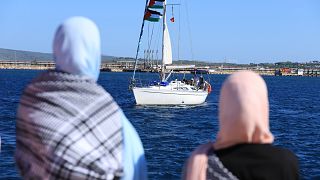The Morning Call
Just when Egypt’s crucial tourism sector was recovering from the 2011 revolution, a 2013 coup and consistent Islamist threats, the billion dollar industry finds itself preparing for a possible attack from the new coronavirus.
Egypt’s sudden declaration of 45 new coronavirus cases from the single ship, a drastic spike from its previous countrywide record of three, sparked fears the disease was far more widely spread in the country of 100 million people.
Luxor, home to the iconic Valley of the Kings and Tutankhamen’s tomb, is now the center of the country’s COVID-19 outbreak. Last weekend, 45 passengers and crew members aboard the cruise ship, ‘A Sara’, tested positive for the virus. On Sunday the government confirmed the country’s and Africa’s first fatality from the illness. The North African nation had reported 59 infections by Wednesday.
Despite this, the tourism and antiquities minister Khaled al-Anany and Egyptian officials continue to be reassuring. However, under President Abdel Fattah el-Sisi, media has often been muzzled and the government has repeatedly hidden the truth. A major example is when it refused to admit that an Islamic State bomb brought down a Russian jetliner over Sinai in 2015. Egyptians and foreign tourists alike therefore have reason to be skeptical that the government is revealing all the facts.
Is the Egyptian government being truly transparent or is it protecting it’s economic jewel?
A question posed by host Nyasha K Mutizwa.





![Africanews celebrates fifth anniversary [Night Shift]](https://static.euronews.com/articles/stories/05/57/72/74/320x180_cmsv2_6b1e7837-a917-526b-b3b4-4582a3f8bcac-5577274.jpg)
![Africanews celebrates fifth anniversary [Morning Call]](https://static.euronews.com/articles/stories/05/57/72/70/320x180_cmsv2_a6c857d4-80a3-510a-88e6-f060ea8d9ee9-5577270.jpg)






01:00
Pix of the Day: September 10, 2025
01:08
US and Egypt co-host Bright Star 25 joint military exercises
01:14
Ethiopia launches Africa’s largest dam as neighbors eye power imports
02:02
Ethiopia's Grand Renaissance Dam inauguration gives new hope to many Ethiopians
01:11
Ethiopia prepares for inauguration of controversial Grand Renaissance dam
01:05
66,000 Kenyans to lose jobs if AGOA not renewed